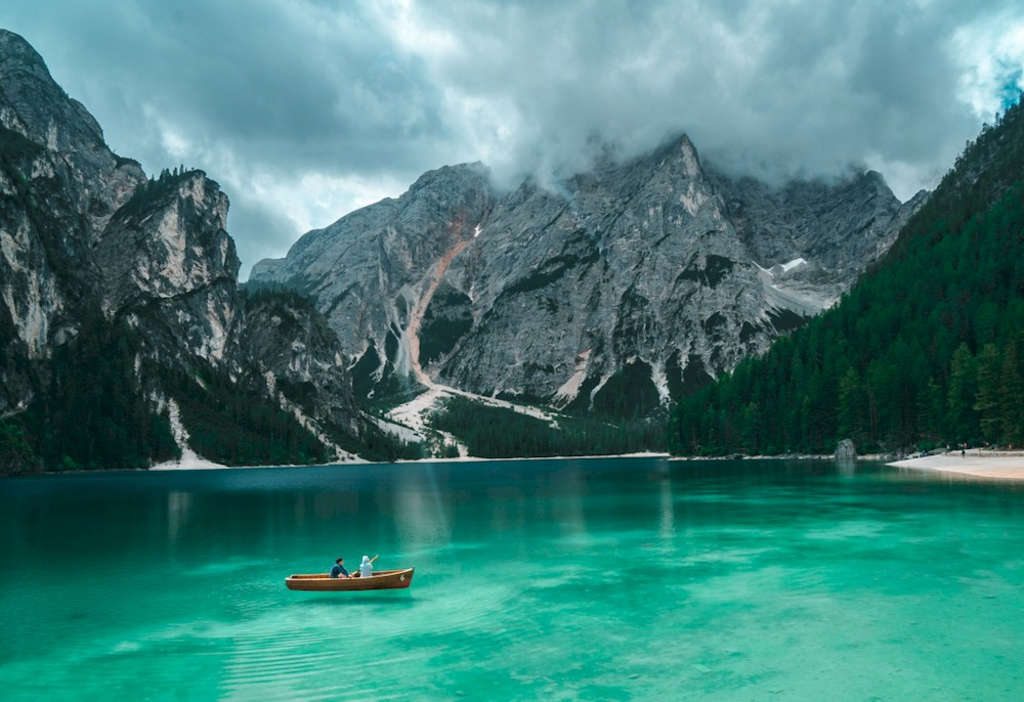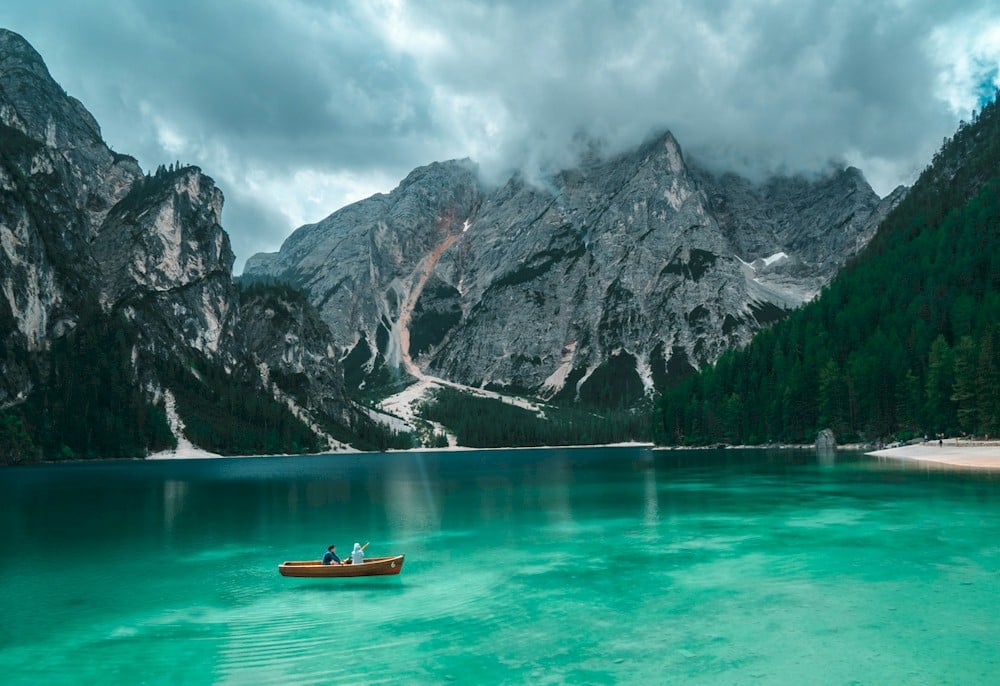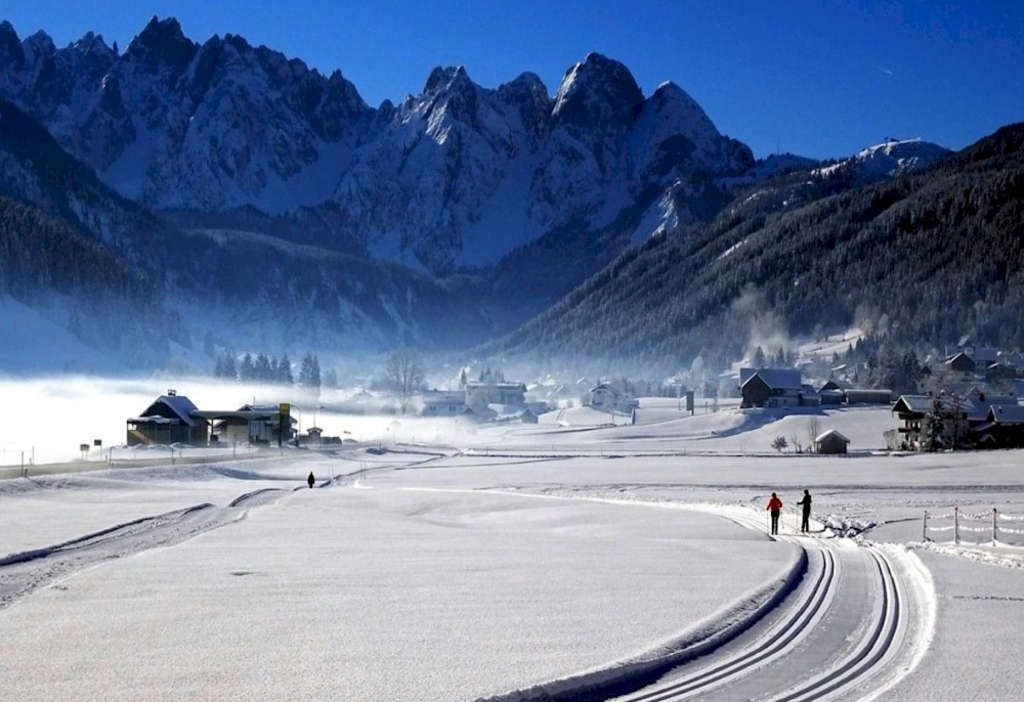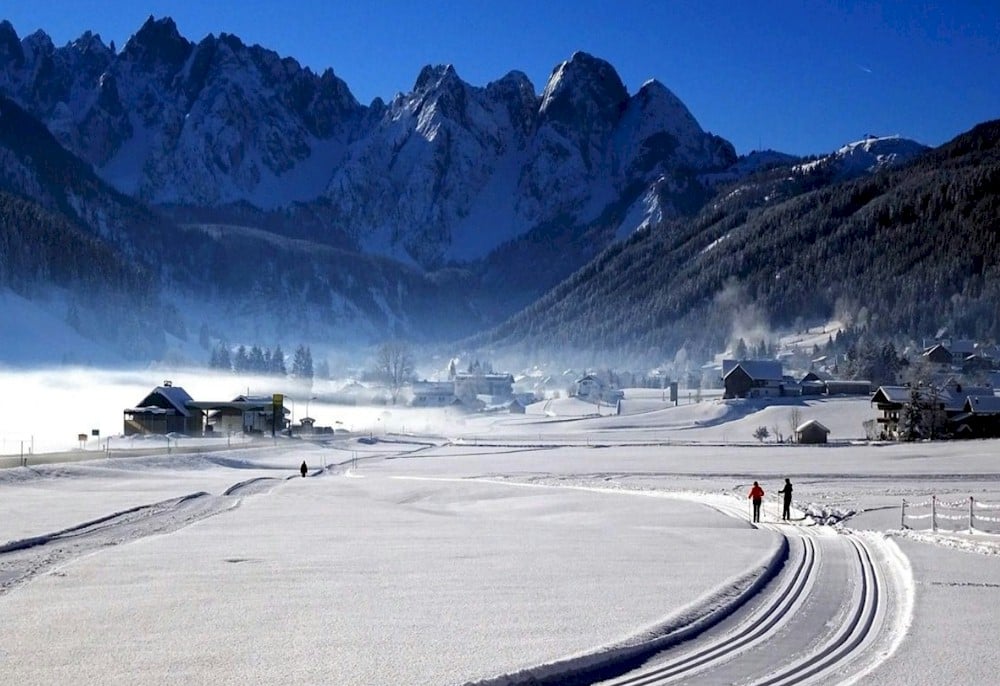Promoting Wellness Through Reconnecting Guests With Nature

Mental health issues have become a pressing concern for health systems worldwide.
The COVID-19 pandemic has further exacerbated this situation, leading to a staggering 25% rise in depression and anxiety rates in the first year of the pandemic period.
In addition, individuals are grappling with a myriad of external stressors linked to economic, social, and political uncertainties such as war, inflation, violence, and more. Although these circumstances are beyond an individual's control, they pose significant threats to mental health and overall well-being.
The concept of good health extends beyond the mere absence of disease, encompassing a state of complete physical, mental, and social well-being. Mental health is of particular significance as it is an integral component of overall health and well-being. The World Health organization (WHO) defines mental health as a state of well-being that allows individuals to effectively cope with life's stressors, to realize their potential, to learn and work well, and to contribute to their communities.
More than two years since the onset of the pandemic, mental health concerns are still on the rise. Health care providers are expressing concerns regarding the lingering impact of the pandemic on the public health system as the consequences of the rising mental health issues seem far reaching and multifaceted. Mental health issues can lead to decline in overall well-being, impaired quality of life, decreased productivity, and many other complications. These issues can also strain interpersonal relationships and exacerbate existing social disparities.
Moreover, the collective impact of mental health issues on society manifests as heightened healthcare costs, reduced workforce productivity, and added burden on public health system. As such, mental health and wellness have become a collective social responsibility, and the hotel industry and spa businesses can contribute by providing accessible, affordable, and inclusive spa programs that prioritize mental health and wellness.
Growing Consumer Awareness on Mental Health and Well-Being
Amidst one of the most significant global crises, there is a growing awareness among consumers regarding their health and well-being. Prioritizing their overall wellness, people are now intentionally planning vacations specifically geared towards enhancing their mental health and overall sense of well-being.
In Google's "Year in Search 2022," the top health-related searches highlighted a strong focus on physical and mental recovery, as well as coping mechanisms for anxiety and depression. Queries such as "how to handle stress," "how to cure depression," "can I change...?," "how to start again?," and "how to be more positive?" underscored people's quest for new opportunities and novel approaches to navigate their lives. Collectively, these searches exemplify a desire for mental well-being, personal growth, and a search for positive pathways forward.
Consequently, there has been a significant surge in the demand for wellness products and services worldwide. In line with this trend, the Global Wellness Institute's report highlights that the global wellness economy has outpaced the global GDP growth in the past decade, reaching $4.9 trillion in 2019 and it is projected to reach $7 trillion by the year 2025. This remarkable growth signifies the increasing importance people are placing on their well-being and their willingness to invest in products and services that promote wellness.
Wellness Tourism and the Spa Industry
Wellness tourism activities are aimed at improving and balancing essential aspects of human life that includes physical, mental, intellectual, spiritual, and occupational domains. Consumers may engage in wellness tourism for preventive, proactive, and lifestyle-enhancing activities such as exercise and fitness, healthy eating, body and facial beauty treatments, meditation and relaxation techniques, water-based bathing treatments, mind-body interventions, pampering and healing treatments, creative arts, and wellness focused education and workshops to achieve a balance and improvement across these different domains of their lives.
The spa industry holds a prominent position in the global wellness market, as it already provides a wide array of wellness services and treatments within its facilities. A report published by United Nations World Tourism Organization (UNWTO) in 2018 showed that the primary motivation behind people visiting spas is to alleviate stress and relax. In response, the global spa industry has evolved significantly over the years with spas introducing new programs and activities that adopt a more comprehensive approach to wellness.
In addition to the traditional spa treatments, modern spas have expanded their service offerings to include various healing treatments, yoga and meditation sessions, tai chi classes, jacuzzi facilities, hammam experiences, therapeutic massages, culturally authentic and physically engaging adventures, relaxation programs, and the provision of organic and locally sourced healthy food options. Some spas even integrate medical care into their offerings. With the changing lifestyle and great emphasis on the enhancement of one's well-being, spa retreats have become an important avenue for people to fulfill their wellness goals.
Modern Living Environment and Nature Deficit Disorder
Due to digitalization, modern built living environment, and many other obstacles presented by the modern society, people are now spending more time indoors, which disconnects them from the nature. During the Covid-19 pandemic, most work environments have switched to either fully remote or hybrid models. This shift has resulted in people spending even more time online and less time engaging in socialization and outdoor activities. According to a study conducted by U.S. Environmental Protection Agency, Americans spend approximately 93% of their time indoors (87% inside the buildings and 6% inside automobiles), which means that Americans are only spending 7% of their time in outdoor environment.
This statistic is concerning, as it deprives people of the myriad benefits that come from connecting with nature. Studies have linked this sedentary lifestyle with poor physical and mental health. The term "Nature Deficit Disorder (NDD)" was introduced in 2005 by Richard Louv, co-founder, and chairman emeritus of the Children & Nature Network, referencing to the lack of outdoor activities and the negative effects of people's alienation from nature. While NDD is not recognized as medical diagnosis, it has been linked to attention deficit disorder, obesity, chronic pain, physical and mental illnesses among many other conditions.
The Connection Between Natural Environment, Human Health, and Well-Being
Nature has long been recognized for its healing properties. Since medieval times, healers in mosaic infirmaries recognized the positive effect of nature on both physical and mental health. These infirmaries' healing practices included natural therapies that incorporated elements of nature into their treatments. Early monasteries also embraced the healing power of nature through the establishment of traditional healing gardens and farms, which were revered for their ability to soothe, restore, and promote overall well-being.
Florence Nightingale's article published in 1859 further emphasized the role of nature in the recovery process of patients. In her work, Nightingale highlighted the importance of outdoor spaces, the presence of plants, access to fresh air, and exposure to natural sunlight as integral components for promoting healing and well-being, reinforcing the significance of incorporating natural elements into healthcare environments.
As more people are suffering from Nature Deficit Disorder, various countries and governments have started to take active roles in promoting nature-based therapies. These programs, also known as nature therapy, green exercise, forest therapy, ecotherapy, horticulture therapy, or forest wellness programs, are immersive experiences designed to connect people with nature in order to promote growth and healing.
For example, Japan is leading the way in forest bathing, an immersive forest experience known as shinrin-yoku. This practice originated in Japan and was introduced as their national health program in 1982. This Japanese belief in calming and healing powers of forests is influenced by the Shinto religion. South Korea has also recognized forest therapy as an official public health concept. In China, forest wellness is often integrated with traditional Chinese medicine and hot springs to provide holistic wellness experience to its guests.
The Global Wellness Summit in 2019 reported that forest bathing is one of the leading global wellness and spa trends that has become a truly recognized healthful pursuit. The Association of Nature and Forest Therapy (ANFT ) in the United States and the International Nature and Forest Therapy Alliance (INFTA ) in Australia are some of the advocates of forest therapy. These associations are also involved in training and certification of forest therapy guides.
According to ANFT, forest therapy is a practice that promotes healing and wellness through immersing oneself in the calming and restorative atmosphere of forests and other natural environments where the focus is on mindful connection and relationship with the environment. INFTA also implements and promotes forest therapy as an evidence-based public health practice that is being recognized globally as evidence-based, cost effective and natural medicine. Park Rx programs designed throughout the United States have already recognized the beneficial effect of forest bathing and have integrated this practice into their programs where patients are provided prescriptions to spend time outdoors in parks or green spaces.
European countries such as Switzerland, Germany and Austria have also recognized significant health benefits of nature therapy and transformed their recreation forests and spas into a billion-dollar health and wellness industry. German spas have embraced the concept or nature therapy incorporating elements such as forest saunas, natural mineral baths, and outdoor meditations spaces. Switzerland is also known for utilizing and its beautiful lakes and meadow landscapes for skiing, hiking, sledging, forest bathing and many other nature immersive experiences.
Healing Effects of Nature on Physical and Mental Health
An increasing number of tourists are seeking opportunity to connect with nature and are attracted to destinations that offer nature-based therapies. Connectedness to nature refers to the extent to which individuals feel emotionally connected to the natural world. The impact of connectedness to nature on individuals' general health and well-being has been well documented in academic literature. There is growing evidence that nature-based activities have psychological as well as sociological benefits, which positively impact human health.
A study conducted in UK revealed seven categories of healing effects of walking in nature, which are: being part or sense of belonging, closer to what is more natural, getting away, being me, finding meaning, feeling safe and striving. The study further reported that walking in nature in a group was found to alleviate emotional pain and withdrawal, feeling of insecurity, isolation, rejection, hopelessness, worthlessness, and oppression.
Spending time in the wild nature is also known to have healing effects including stress recovery, improved mood and relaxation, enhanced concentration, a sense of purpose and meaning, better social contact, and improved spiritual well-being, among many other benefits. Healthcare and medical studies have also reported that exposure to nature has beneficial effects in lowering blood pressure, reducing pulse rate, accelerating healing, improving recovery, providing pain relief, reducing stress hormone level, increasing the production of natural killer cells and offering anti-inflammatory benefits.
Integration of Nature Therapy in Hotel and Spa Offerings
The pandemic lockdowns and restrictions have sparked a reevaluation of human connection to the natural world and the therapeutic value of nature. There has been a remarkable increase in the number of visitors flocking to national parks, beaches, mountains, and ski areas. A recent study conducted by American Express showed a significant emphasis on wellness focused trips where an impressive 73% of the respondents worldwide stated that their vacation is centered around improving their physical and mental health. The study also indicated that 68% of the participants expressed their preference for travel destinations in natural settings to achieve mental clarity.
These studies highlight the growing popularity of nature-oriented experiences among global travelers. With the wellness goal in mind, people are also considering easier and independent ways to connect with nature without much hassle and planning. Thus, hotels and spas that offer affordable and authentic experiences in nature is becoming a high value and popular option for these tourists.
All of these developments have presented a great opportunity for hotel industry and spas to meet the needs of guests who are looking for affordable, meaningful, and holistic well-being experiences. Thus, forest bathing and nature immersion experiences are now being integrated into spa programs so that guests can reap the benefits of nature's healing energy.
Thus, in addition to the traditional as well as specialized services such as hydrotherapy, spa massage, and sound healing, spas can integrate natural outdoor elements into their wellness treatments. Hotel and spas can utilize their location and surrounding natural environment to develop unique therapeutic practices that can be incorporated into the spa experience and programming for guests.
These programming may include simple activities such as guided nature walk and bird watching, as well as specialized activities such as forest meditation and yoga, scenic dinners, hiking, trekking, caving, forest bathing, camping, mountaineering, open-air massage, cycling and nature photography among many others. Nature immersion activities can also include water activities such as diving, sailing, river bathing, kayaking, fishing, whale watching, swimming outdoors, canyoning, and canoeing. Other unique nature immersive experiences may include staying in tree house cabins and decks, gardening and farming, and group walking in farmlands.
Benefits of Green Spaces
The presence of green spaces in the living environment have also been linked to health and well-being. Thus, new hotel and spa projects can incorporate biophilic designs into their buildings, landscapes, and guestroom designs. This approach involves maximizing natural light, ventilation, plants, water features, natural views, landscapes, and the inclusion of indirect experiences of the natural environment.
For properties with limited access to natural landscapes, this can be achieved through greening the indoor spaces and adding elements of natural world such as flora and fauna, nature-inspired artwork and photographs, incorporation of natural geometries, and the use of materials like wooden furniture and ornaments designed in shapes and forms found in nature.
While direct contact with nature can trigger variety of physical, emotional and cognitive responses, indirect contact with nature such as looking at a picture of nature, organic shapes and forms can arouse human senses. Further, these design elements may also be appealing to spa-goers and enhance their overall experience, even if they are not specifically seeking nature-related activities. In addition, green workspaces are also beneficial to employees as studies have shown that green surrounding helps lower stress level, enhance employee morale, increase attention and focus leading to greater productivity.
In our modern world, where stress has become the new norm, hotels and spas are at the forefront of providing a holistic approach to wellness services. Alongside relaxation, rejuvenation, and self-care, these establishments can create integrated programming and services that cater to the needs of health and wellness-oriented guests who are seeking nature's healing touch for both preventative and therapeutic purposes.
Moreover, the increasing disposable income among consumers and their growing interest in quality of life and well-being will drive the demand for affordable wellness programs. To stay ahead in this dynamic well-being industry, businesses must offer affordable and authentic nature immersion experiences, as spending time in nature becomes a trendy luxury.
Above all, through the creation of programs that improve the mental well-being and overall health of guests, the hotel and spa industry have a unique opportunity to contribute to public health with a substantial impact on the society as a whole.
Reprinted from the Hotel Business Review with permission from http://www.hotelexecutive.com/.







